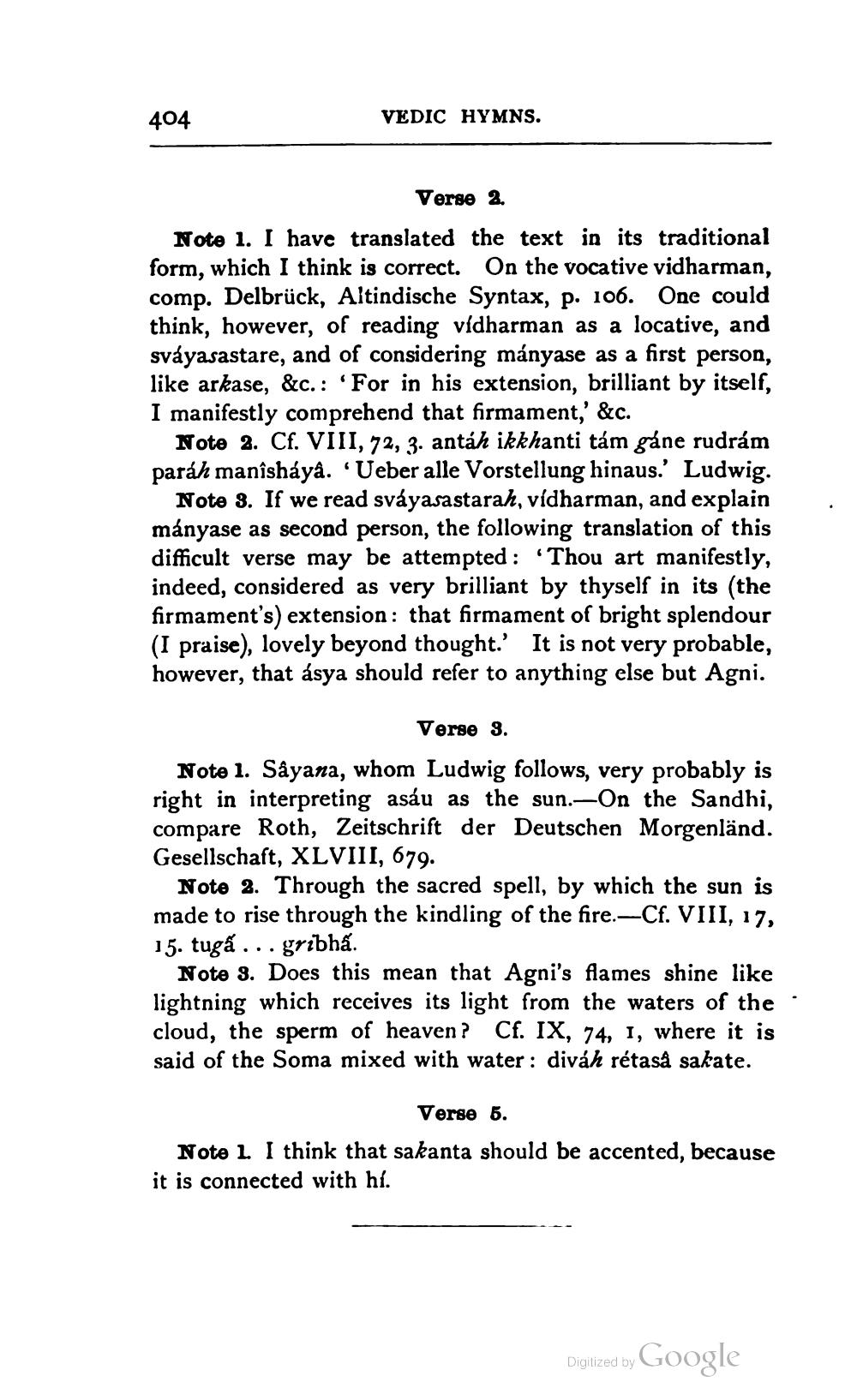________________
404
VEDIC HYMNS.
Verse 2 Note 1. I have translated the text in its traditional form, which I think is correct. On the vocative vidharman, comp. Delbrück, Altindische Syntax, p. 106. One could think, however, of reading vidharman as a locative, and sváyasastare, and of considering mányase as a first person, like arkase, &c. : 'For in his extension, brilliant by itself, I manifestly comprehend that firmament,' &c.
Note 2. Cf. VIII, 72, 3. antah ikkhanti tám gáne rudrám paráh manîsháyå. 'Ueber alle Vorstellung hinaus. Ludwig.
Note 3. If we read sváyasastarah, vidharman, and explain mányase as second person, the following translation of this difficult verse may be attempted: Thou art manifestly, indeed, considered as very brilliant by thyself in its (the firmament's) extension: that firmament of bright splendour (I praise), lovely beyond thought.' It is not very probable, however, that ásya should refer to anything else but Agni.
Verse 3. Note 1. Såyana, whom Ludwig follows, very probably is right in interpreting asáu as the sun.-On the Sandhi, compare Roth, Zeitschrift der Deutschen Morgenländ. Gesellschaft, XLVIII, 679.
Note 2. Through the sacred spell, by which the sun is made to rise through the kindling of the fire.-CF. VIII, 17, 15. tugá ... gribhá.
Note 3. Does this mean that Agni's flames shine like lightning which receives its light from the waters of the cloud, the sperm of heaven? Cf. IX, 74, I, where it is said of the Soma mixed with water : diváh rétaså sakate.
Verse 5. Note L I think that sakanta should be accented, because it is connected with hi.
Digitized by Google




